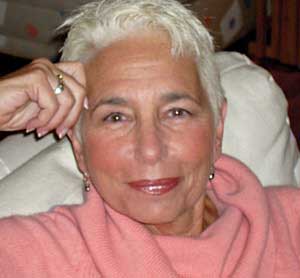
|  |  |  Health & Beauty Health & Beauty  
Why Choose a Life Coach?
 Lynn Rogers, PhD - PVNN Lynn Rogers, PhD - PVNN
November 08, 2010


| | If you're wondering if coaching might be of help to you and you have questions, please call me at 322-151-3639 or email: lr(at)lynnrogers.com. |  |
Maybe it's because I'm 65 that I prefer life coaching to traditional psychotherapy. Though trained in both, coaching is what I seek personally and offer professionally. At this time in my life, I'm more interested in making changes that move me forward, toward feeling fulfilled and satisfied, than in looking back at what caused my problems/challenges, issues, and I've found that my clients also find this approach more effective in helping them reach their personal goals.

What's the difference between coaching and therapy?

Life coaching focuses on your life in the present and future so you can expand your options, take action and move on. The coaching relationship, based on a growth model, is collaborative. Because the relationship between client and coach is peer-to-peer, boundaries are more flexible.

Clients are usually looking to get unstuck in some part of their life; to identify what will help them move forward, setting goals with the coach. It is more action oriented, outcome driven, and often more short-term than therapy.

The focus of therapy is often the past and present; how come we think, act, behave as we do. In therapy the relationship between therapist and patient/client is hierarchical. Based on a medical model therapy invites a diagnosis, made by the therapist with goals set primarily by the therapist to help the client "heal" an old wound. Because the therapy relationship is hierarchical, boundaries are more rigid and dialogue is not a part of the process.

While traditional psychotherapists and life coaches may both work with fully functioning adults facing challenging situations, helping them make changes and accomplish meaningful goals, their framework and approach are significantly different. A bonus with coaching is the option to work by phone if desired, eliminating travel to appointments.

Three different situations in which coaching was their option:

Paul and Elana had been living in Mexico for six years Following Paul's diagnosis of brain cancer, he and his wife Elana were referred to me by their neurologist. Paul wanted no information on his disease or condition - he just didn't want to hear it. As far as he was concerned, "the doctors knew best" and would tell him what to do.

In contrast, Elana researched everything - she knew options, asked questions, challenged opinions. How were they to communicate? Their kids in the states were insisting that they "come home." They were overwhelmed with treatment options and questions about the future.

Our work together was focused, intense and often very funny. The couple found the strengths in their differences, learned how to talk about their fears and concerns, shared their dreams, remembered stories that gave their lives meaning, set a course for effectively coping with the "disease," and went about living their best lives.

Marianne and Bob retired to Mexico. For a long time, they focused much of their energy and attention on the move, closing up their lives in Canada, and then trying to learn where the market was and how to get their phone to work.

Now with the busy-ness of all that behind them, questions arose - What matters now? What do we want to let go of in this new life? Have more of? What are our dreams and how might we fulfill them? The dialogues generated by these questions helped Marianne and Bob consciously choose their future.

Diana is 34, single, living in California and successful at her work. And she's feeling stuck. She can't get herself to apply for a promotion or end a relationship that seems dead in the water. Together we explored the thinking that keeps her where she is, looked at her desired outcomes, and designed steps to reach those goals. Our partnership was collaborative, supportive and challenging.

My unique coaching style integrates more than 30 years of experience as a licensed California psychotherapist and my work as an ordained interfaith chaplain and life coach. I find coaching effective for a variety of life issues such as:

• Change/transition in all areas of life
• Relationships and intimacy
• Living with life-altering illness
• Health, aging and lifestyle
• Spirituality and growth

If you're wondering if coaching might be of help to you and you have questions, please call me at 322-151-3639 or email: lr(at)lynnrogers.com.

 Integrating 25 years of experience as a California licensed family therapist and life coach, Dr. Lynn Rogers offers uniquely practical and personalized sessions for clients and their families. To learn more about her work, click HERE or visit LynnRogers.com. As an ordained Interfaith Chaplain, Lynn also officiates at Puerto Vallarta weddings and other significant life transitions. For more information, click HERE or visit InterFaithChaplain.com. Integrating 25 years of experience as a California licensed family therapist and life coach, Dr. Lynn Rogers offers uniquely practical and personalized sessions for clients and their families. To learn more about her work, click HERE or visit LynnRogers.com. As an ordained Interfaith Chaplain, Lynn also officiates at Puerto Vallarta weddings and other significant life transitions. For more information, click HERE or visit InterFaithChaplain.com. |

 |
|  |



